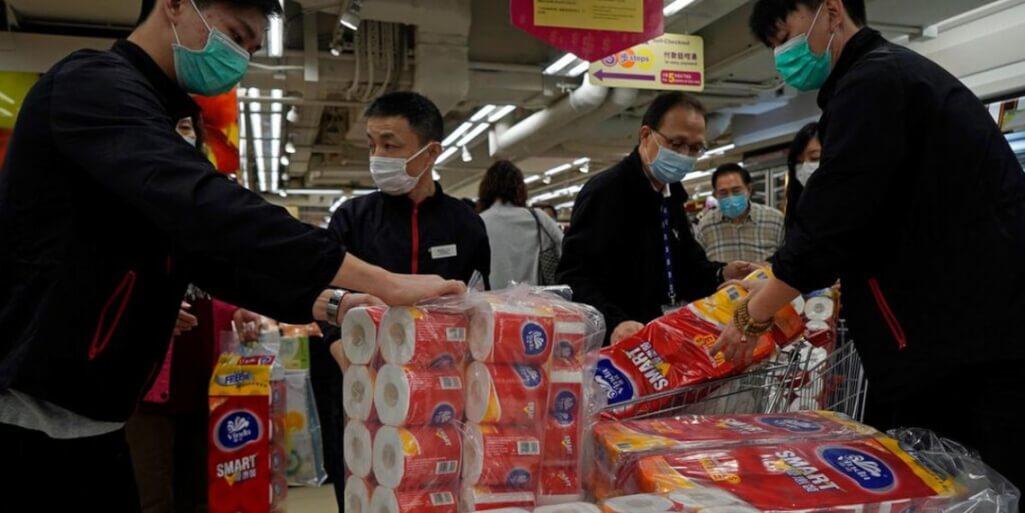Men responsible for an armed robbery of toilet paper were wanted by Hong Kong police on Monday as residents rushed to the toilet paper for fear of a shortage due to the new coronavirus.
For ten days, finding toilet paper has become difficult in Hong Kong despite government assurances that supplies are not affected by the epidemic of viral pneumonia.
Supermarkets have been unable to restock quickly enough, and long lines of customers sometimes form before stores open. Barely crowded, the shelves empty at full speed.
Hong Kong shoppers have been bulk buying household items including toilet paper and dried goods. A major supermarket chain has dismissed online claims of impending shortages as a "solid rumour". #coronavirus pic.twitter.com/2Uki2DG1Wn
— SCMP Hong Kong (@SCMPHongKong) February 6, 2020
Consumers rush in the same way on rice, pasta as well as cleaning products and hydroalcoholic solutions.
Police reported that a truck driver was robbed Monday morning by three men in front of a supermarket in Mong Kok, one of the historic neighborhoods of the triads (local mafias).
Police protection
“A delivery man was threatened by three men armed with knives who stole packages of toilet paper for more than 1,000 Hong Kong dollars (127 francs),” a police spokesman told AFP.
Video footage from Now TV shows police investigators standing around several pallets of toilet paper in front of a supermarket. One of them is only half full.
Also Read: Coronavirus on the Diamond Princess: repatriated passengers, others are patient
Some Hong Kongers were puzzled about the theft, while others preferred to laugh. “I would steal face masks rather than rolls of toilet paper,” joked a resident interviewed near the location of the robbery by the iCable television channel.
The megalopolis, where 54 cases of the new coronavirus have been recorded, is currently experiencing a real shortage of masks intended to protect themselves from this viral infection.
A collective hysteria has gripped the inhabitants of Hong Kong since the appearance of the new coronavirus in mainland China, awakening the trauma linked to SARS (severe acute respiratory syndrome).
https://twitter.com/wongtafuk/status/1228527086723198976
This other coronavirus had killed nearly 300 people in the semi-autonomous territory in 2002 and 2003. Beijing had then been slow to raise the alarm and since then, the population of this territory of more than 7 million inhabitants, remains wary of the with regard to local government health policy.
This epidemic comes as the executive, aligned with Beijing, has enjoyed a historically low popularity rate after months of pro-democracy protests. Authorities castigated false rumors of a shortage and assured that supplies of food and household products remain constant.
This rush for certain products has itself fueled this lack of certain products, especially in a very densely populated city where shops are generally small.














